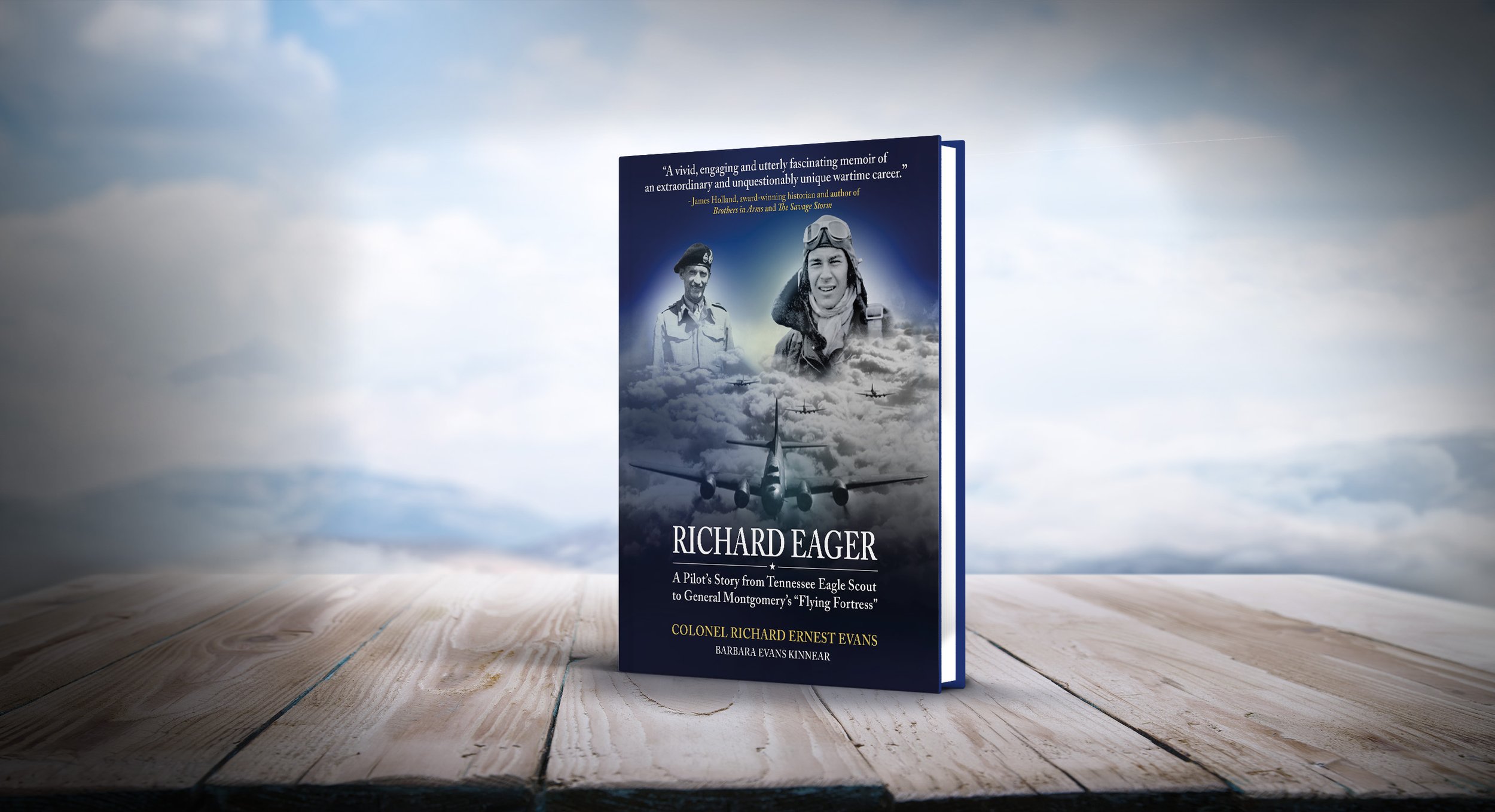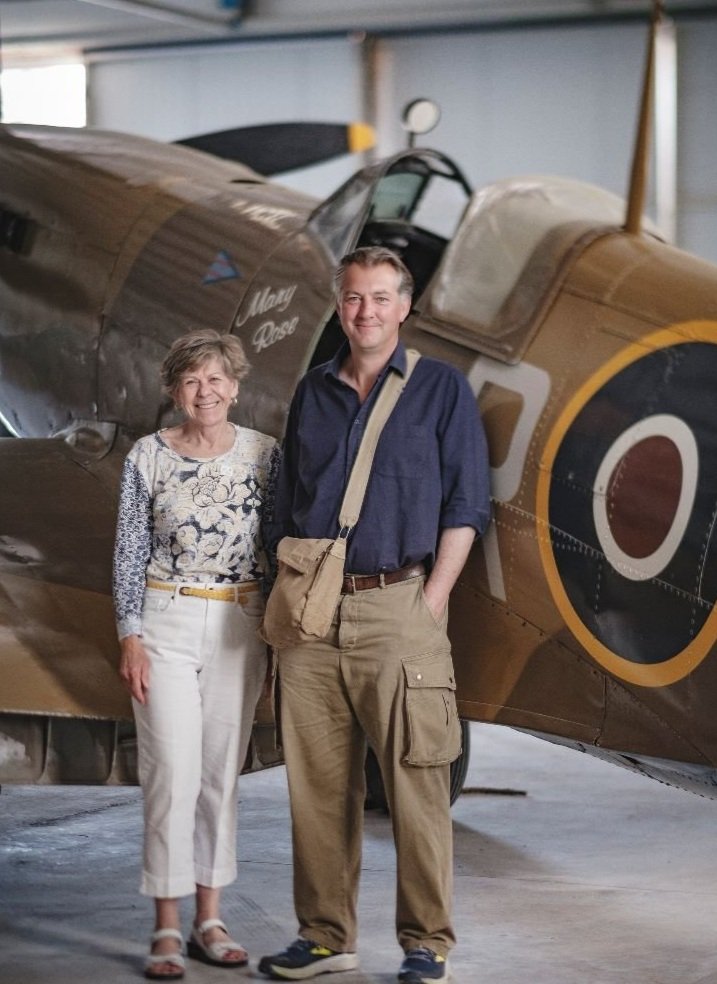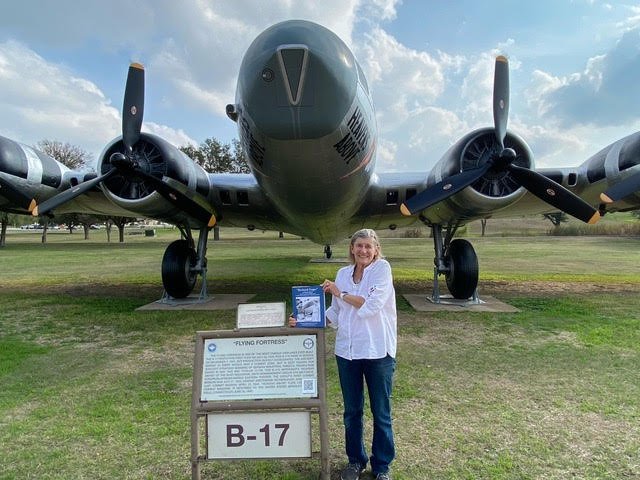Remembering the original Theresa Leta crew
The original Theresa Leta crew, piloted by Captain Richard Evans (far right) and in the service of General Montgomery (far left). Four of these young men never returned home.
On this Memorial Day, and on all days, we reflect on the bravery, dedication and sacrifice of those who’ve lost their lives in the service of our dear country.
We remember those of the original Theresa Leta crew, piloted by Captain Evans, who made the ultimate sacrifice.
There are many beautiful poems and songs that come to mind on this day. A personal favorite is the stunning hymn, “I vow to thee, my country,” of which these are the opening lines:
I vow to thee, my country
All earthly things above
Entire and whole and perfect
The service of my love
The love that asks no questions
The love that stands the test
That lays upon the altar
The dearest and the best
The love that never falters
The love that pays the price
The love that makes undaunted
The final sacrifice
The vast number of those servicemen and women that made the ultimate, indeed the “final”, sacrifice, during WWII is almost incomprehensible today. The losses of the Air Force (then the U.S. Army Air Forces) are particularly staggering. More than 50,000 Airmen lost their lives in the four years of WWII and the majority of those losses were on bomber missions over Nazi Germany in B-17s and B-24s. The average age of the crew of a B-17 was less than 25, with four officers and six enlisted Airmen manning the aircraft. Their chance of survival was less than 50 percent. (Source: Air and Space Forces Association.)
These numbers should not let us overlook the magnitude of any single loss. In the words of the Talmund, “Whoever kills one life kills the world entire, and whoever saves one life saves the world entire.” Indeed, every soul lost was a “world entire” to that person’s family, community and loved ones.
Today we remember those brave airmen of the original Theresa Leta crew, piloted by Captain Richard Evans, who sacrificed their lives in the service of our country.
*****
Excerpt from Richard Eager, Chapter 20:
Monty smiled, looked pleased, and then was quiet for a few minutes. Then he embarked on a different subject, as if he had something on his mind. “Major Evans, I notice when I got aboard that you have a different crew. Not the men we have had before. I looked for some familiar faces to greet. Do you change crewmen often? When you fly combat missions, do you try to stay with one crew, or do you shift about a bit?”
“General Montgomery,” I said, “I do shift crewmen on every combat mission I fly. I have become a Squadron Commander since we were together, General, and I schedule myself with different crews so that I can be familiar with the strengths and weaknesses of all of the men under my modest command, in particular, the ‘comers,’ who are working hard to excel, to push ahead of their contemporaries.”
When the Army Commander just smiled and waited, I added, “General Montgomery, I am very pleased that you remembered my men and inquired about them. General, most of the B-17 crewmen with whom you were familiar, in fact, four were killed in a B-17 crash, flying with another pilot.”
General Montgomery then turned quickly towards me, “I am so terribly sorry. I was afraid when I didn’t see them right off that something might have happened. They were a fine body of young men.” There was genuine sadness in The Army Commander’s voice.
“Indeed, they were,” I responded. “Thank you, General Montgomery, I know you mean that; I’m sorry they are not here, to hear you say that you regarded them highly. Lieutenant Johnson, my co-pilot, who often turned over his seat to you, was killed. So was Technical Sergeant Owens, my enlisted crew chief and top-turret gunner, who was with us here in the forward cockpit most of the time. Sergeant Owens was a leader who, quite literally, led. I don’t recall ever hearing Sergeant Owens giving orders to his men. I remember him as always just taking off right away to get going on an assignment. I remember his men were immediately on the run to catch up and keep up with him.”
“General, I doubt you noticed Technical Sergeant Morris, our radio officer. He was a fine, quiet, thinking man. He was tucked into the small radio operator’s compartment, just aft of your office in our bomb bay. I thought of Sergeant Morris as a father figure for the younger enlisted crewmen in my ten-man force. My heart aches when I think of my crewmen as they were falling to their deaths. I shall never forget them, General Montgomery. Our ever-vigilant Waist Gunner, Staff Sergeant Kennedy, also died in the B-17 accident. He was brought on as one of your crew for he had already flown many missions and had more than his share of “kills.”
I was seeing a very different side to General Montgomery. He was truly saddened to hear about my Theresa Leta crew, no question about it. “General Montgomery,” I continued, “I wish that I could tell my men that you remembered them and inquired about them. They would have been very proud. Sergeants Austin, Ward and Second Lieutenants Beringsmith and Carver, my ball-turret, tail gunner, bombardier and navigator survived. They’ve pretty much fulfilled their missions and will be on their way home soon. I’m sure you remember Austin and Ward; they were our youthful eager beavers. Beringsmith was the serious one that always had our backs, and Carver was well respected for plotting the safe routes through enemy territories for our Flying Fortress. They were flying a separate mission when the accident, killing four of my original crew, took place.”
*****
May Lieutenant Johnson, Sergeant Owens, Sergeant Morris, Staff Sergeant Kennedy be remembered and rest in peace.









Barbara (“Bobbie”) Evans Kinnear, daughter of Colonel Richard Ernest Evans, joins historian and author, James Holland, on his podcast, “We Have Ways of Making You Talk”